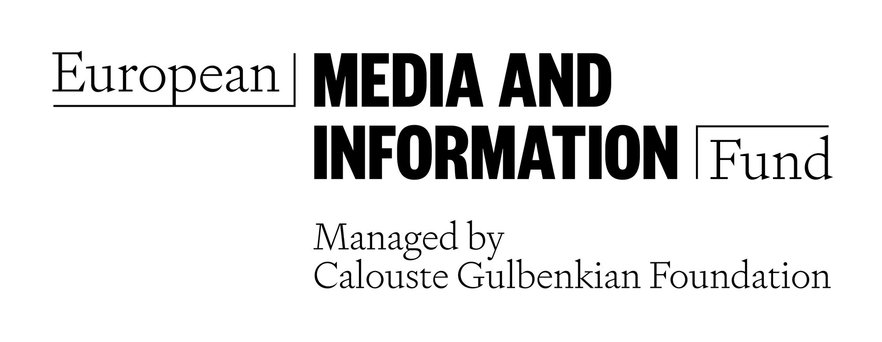Armands Astukevičs, Researcher at the Centre for East European policy studies
The invasion of Kursk region by Ukrainian forces caught analysts in the West and the Russian elite off-guard. After Ukraine’s unsuccessful counter-offensive last summer and the prolonged difficult situation on the front, the Kursk operation marked a major breakthrough and a stopping point in the Ukraine-Russia war. For the first time in this war, hostilities have been transferred to Russian territory, with significant military repercussions for the course of the war. Last but not least, it has also created significant ripples and influence in Russia itself, giving us new insights into the state of Russian domestic politics and power behind the scenes. How has the Russian elite and public reacted to the current events in Kursk, and what do the messages constructed by the Kremlin regime tell us about this?
The (lack of) reaction of the Russian regime
The Russian regime’s reaction to Kursk is very reminiscent of a year ago, when Yevgeny Prigozhin marched on Moscow. The Kremlin has once again shown its inability to react quickly in a serious crisis, thereby demonstrating the vulnerability of the Russian regime. Along with other authorities in Russia, the state-controlled propaganda machine, without the guidance it received from the Kremlin just three days after the start of the Ukrainian operation, also proved to be confused.
The rhetoric of Russian officials and the media coverage of the situation in Kursk not only highlight several important messages but also expose the Kremlin regime’s underbelly and weaknesses. First, the Kursk operation by Ukraine is presented in the Kremlin media as a failure and doomed to failure, despite the clear ability of the Ukrainian armed forces to occupy a sufficiently large area of Russian territory for several days without even significant resistance.
Secondly, the situation is explained by the fact that the Ukrainian offensive in Kursk is in fact an operation carried out by NATO countries, in which the Ukrainian armed forces are only given the role of executors. According to Kremlin spokesmen, the operation even involved NATO officers, as evidenced by the language in which the officers allegedly communicated with each other on the Russian border. Although such a story is a complete fabrication, it plays an important role in the Kremlin’s chosen communication strategy.
Looking deeper, it becomes clear that these messages only serve as an excuse for what has happened. By filling the Russian information space with such messages, an attempt is being made to construct a reality in the eyes of the Russian public that makes what has happened seem much less important than it actually is, and to put forward fictitious claims to occupy the minds of the population. They aim to distract the Russian public from the real issue – that not only were the Russian armed forces unable to secure the Russian border, but that the local authorities proved incapable in this situation.
At the start of the Ukrainian operation in Kursk, there was no official information from the Russian Ministry of Defence for more than twelve hours. Similarly, the local authorities, whose responsibility was supposed to be to warn the population of the Kursk region and to announce and organise evacuations, largely left this task to the citizens themselves.
The fact that the Kremlin’s master called the first federal-level meeting on Kursk only six days after the start of the Ukrainian operation is not only not a sign of convincing action by the Russian state in a crisis situation but once again demonstrates how vulnerable the Kremlin regime can become under conditions of uncertainty.
However, the main reason for Russia’s unconvincing response to the events in Kursk lies in the nature and specifics of the regime Putin himself has created. As this crisis has demonstrated time and again, the Russian civil and security authorities and officials are not prepared to carry out their duties and take any initiative without orders from above. The lack of action by Russian officials in such situations is clearly understandable, as experience shows that initiative can be punished and decisive action is rarely rewarded. Instead, action is replaced by complicated bureaucratic procedures, the need to coordinate actions in meetings, and to coordinate decision-making directly with the Kremlin.
The circular dance on the question of the responsible official for the Kursk issue also reflects this problem. Five days after the start of the Ukrainian operation, what was happening in the Russian border area was declared an anti-terrorist operation, and the head of the Russian Federal Security Service, Alexander Bortnikov, was appointed as the responsible official. However, within a few days, the situation had changed and Alexey Dyumin, an adviser and confidant of the Russian President, was appointed as the lead monitor of the events in Kursk.
While such manoeuvres raise questions as to why the Russian Armed Forces, which should be responsible for Russia’s military defence, are not given the lead in the Kursk situation, they also demonstrate that without higher political oversight and coordination, the parties involved in the crisis are incapable of working together and acting independently.
Finally, although the Russian information space is closed and censored, the need to fortify Russia’s border areas has been discussed since the beginning of the war, both on the military bloggers’ Telegram channels and in the media. The Russian federal budget even allocated funds for this, which, as reality shows, have probably simply been squandered. In democratic societies, this would be one of the central issues on the agenda of the local media, but it is deliberately kept quiet in the Russian propaganda system.
Russian Propaganda’s Potemkin Village
Alongside attempts to malign the success of the Ukrainian armed forces, Russian propaganda channels have tried to create stories about the effective response of the Russian armed forces and authorities. One of the main protagonists of this story is Apti Alaudinov, commander of the Chechen special unit Akhmat, who became the unofficial spokesman of the Russian defence forces at the start of the Kursk operation. According to him, the Russian army has made remarkable progress, seemingly preventing Ukrainian forces from advancing deeper into the Kursk region and almost defeating them from day one, although the reality on the Russian side has been far from convincing.
Similarly, the failure of the authorities to provide timely support to the public has been portrayed by the Russian media as a testament to the cohesion of Russian society, which has volunteered to support their fellow citizens at evacuation points. However, the Kremlin’s efforts to mask the obvious reality have only partially succeeded. Looking at the Russian regional news, the reaction of the local population is one of justified outrage, perfectly captured by a quote from an interview in an independent regional media: ‘Please take the message to Putin that nobody needs us’.
However, this does not mean that these regional messages are reaching the ears of the general Russian public at the national level. The experience of recent years shows that Russian society has only grown more apathetic to what is happening at the national level and, as the Kursk case shows, even a high-profile event such as the loss of control over Russian territory has not been able to shake it significantly.
Blurred red lines
The reaction of the Russian authorities and officials has also clearly demonstrated how blurred Russia’s red lines really are. The Ukrainian armed forces took the risk of calling the Kremlin’s bluff, and they succeeded. Instead of Putin and those close to him choosing the path of escalation, which would have meant not only a nuclear threat but real action, the Russian leadership has done exactly the opposite – it has tried to play down the significance of what has happened as much as possible. Even Russia’s most ardent nuclear sabre-rattler, Dmitry Medvedev, has been much more moderate in his comments than before, referring to the need to destroy the enemy, but now without invoking nuclear weapons.
Instead, Russian officials have called the events in Kursk a “provocation”, a “situation” and even “territorial uncertainty”. This highlights one of Putin’s observable traits – avoiding naming things he considers undesirable. This is why, for more than two years, the Russian-Ukrainian war has been stubbornly referred to in the Russian information space as a special military operation. In the Kursk context, there is a similar explanation. To call the Ukrainian operation in Kursk a military invasion would be to admit publicly that Russia is incapable of militarily defending it’s borders. A military invasion of Russian territory, on the other hand, should have far more serious consequences and the action required to defend the homeland.
Overall, the events in Kursk and Russia’s response to them provide a number of valuable observations and insights that help to better understand the political nature and logic of the Kremlin regime. The Ukrainian operation in Kursk was not only a military success but also a major test for the Russian institutions and propaganda apparatus. The failure of the Russian leadership to react adequately to Ukraine’s success points both to the shortcomings of the Russian political system and to the way it seeks to mask the truth with disinformation and manipulate messages in order to avoid confrontation with reality.
At the same time, this situation reveals that even in the tightly controlled and censored Russian information space, the ruling regime is not able to subdue it completely. Although small, regional media and local Telegram channels in Russia often shed light on a different reality, which is not always in line with the Kremlin’s methodological instructions, and reflect the true emotions of the public.
Finally, these events clearly point to the main priority of the Russian political system – ensuring the stability of the internal political regime, where all other issues are of only secondary importance.
* Material first published on Delfi.lv
* The creation of this fact-checking material was funded by the European Media and Information Foundation, managed by the “Calouste Gulbenkian Foundation”.




